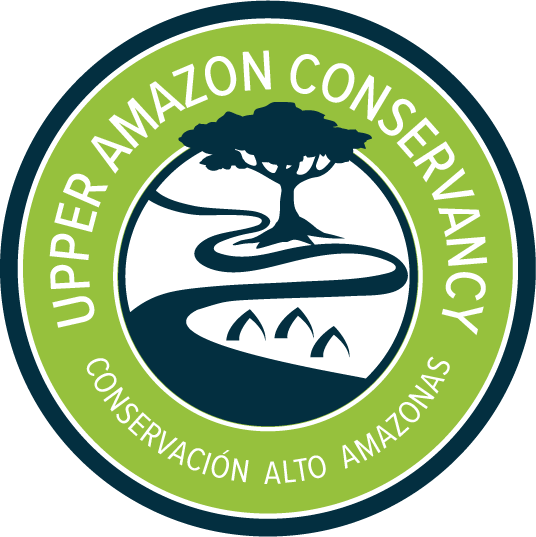Community Cooperatives: Strengthening Indigenous Economy in Yurua
Leaders from Peru and Brazil at the First Workshop on Indigenous Economy.
At Upper Amazon Conservancy (UAC), we believe that conserving the Amazon and fostering economic development in indigenous communities must go hand in hand. Therefore, we collaborate with indigenous communities and organizations to support sustainable activities that contribute to biodiversity conservation and strengthen cultural identity.
Since 2023, the Asheninka communities of Dulce Gloria and Sawawo-Hito 40 have implemented initiatives from the “Community Cooperatives” project with support from UAC. This project aims to establish community management of goods and services derived from productive activities in their territories. By doing so, these communities gain greater control over the economic benefits from their sustainably managed forests. Improving their Cooperative is a key goal within their Life Plans, which UAC has helped develop to strengthen communal organization.
Achieving a fully functional Cooperative has been challenging for Dulce Gloria and Sawawo. Both communities have previously attempted to develop community enterprises to boost their local economies, but, as the leaders noted, the lack of expertise in business management proved to be a significant hurdle. Additionally, inadequate government support and limited development alternatives outside of logging made it difficult to establish these initiatives in Yurúa. Without investments, technical assistance, or support to strengthen community organization, the conditions needed for progress were lacking.
Over the past year, Dulce Gloria and Sawawo have renewed their commitment to the Cooperative project as part of their partnership with UAC and their forest conservation agreements. Support from the Yurua Indigenous Federation, ACONADISYH, and the Ashaninka Apiwtxa community in Brazil has been crucial in advancing both these and additional sustainable development initiatives.
The project has advanced in phases, with goals planned and approved by the communities in their assemblies. Initially, leaders from Dulce Gloria, Sawawo, and other Yurua communities participated in workshops on family-based economic activities hosted by UAC and ACONADIYSH. These events, attended by communities from Peru and Brazil, focused on the sustainable management of cooperatives, women's role and leadership in the family-based economy, and experiences with community projects.
FAMILY-BASED ECONOMY WORKSHOP PHOTOS
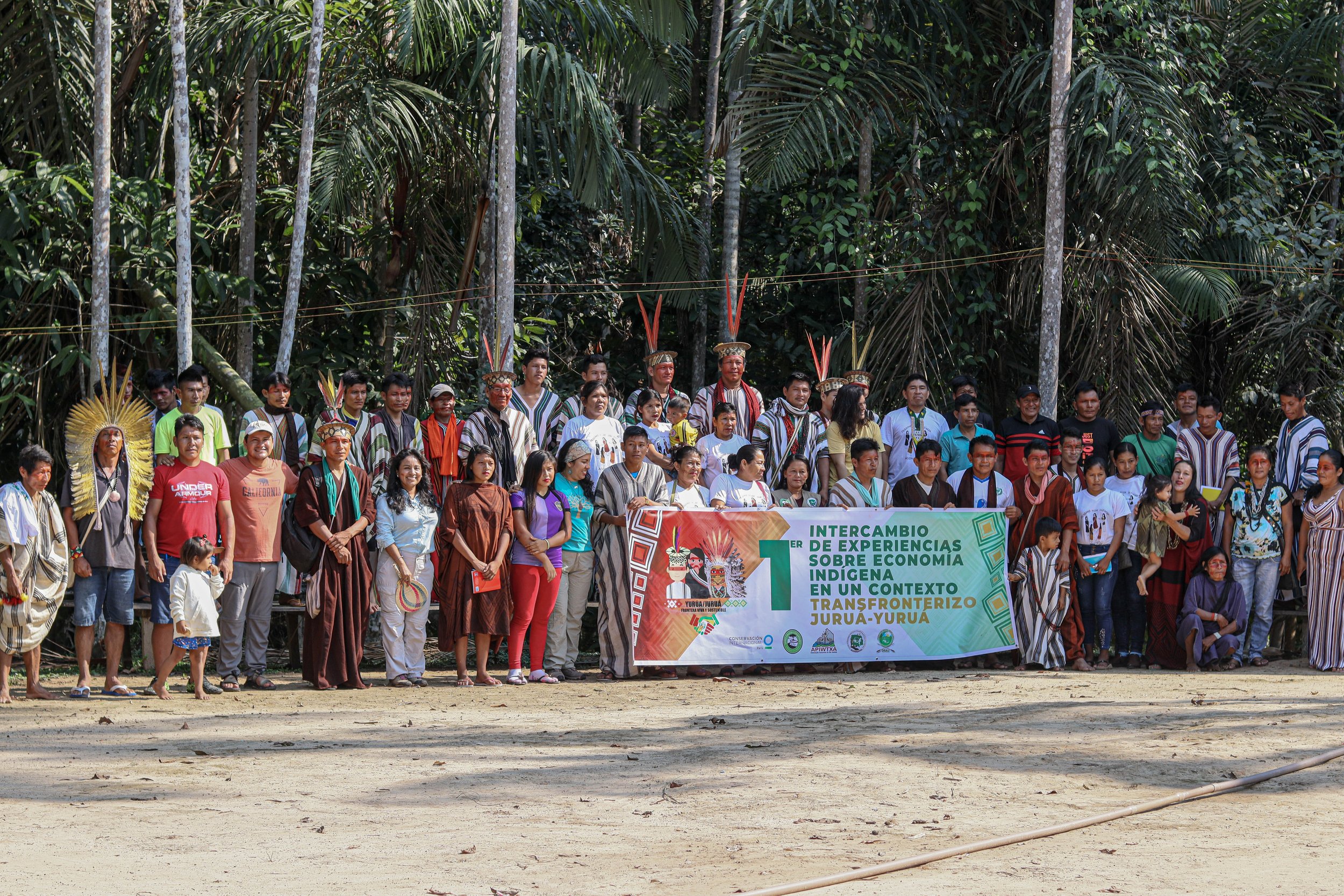
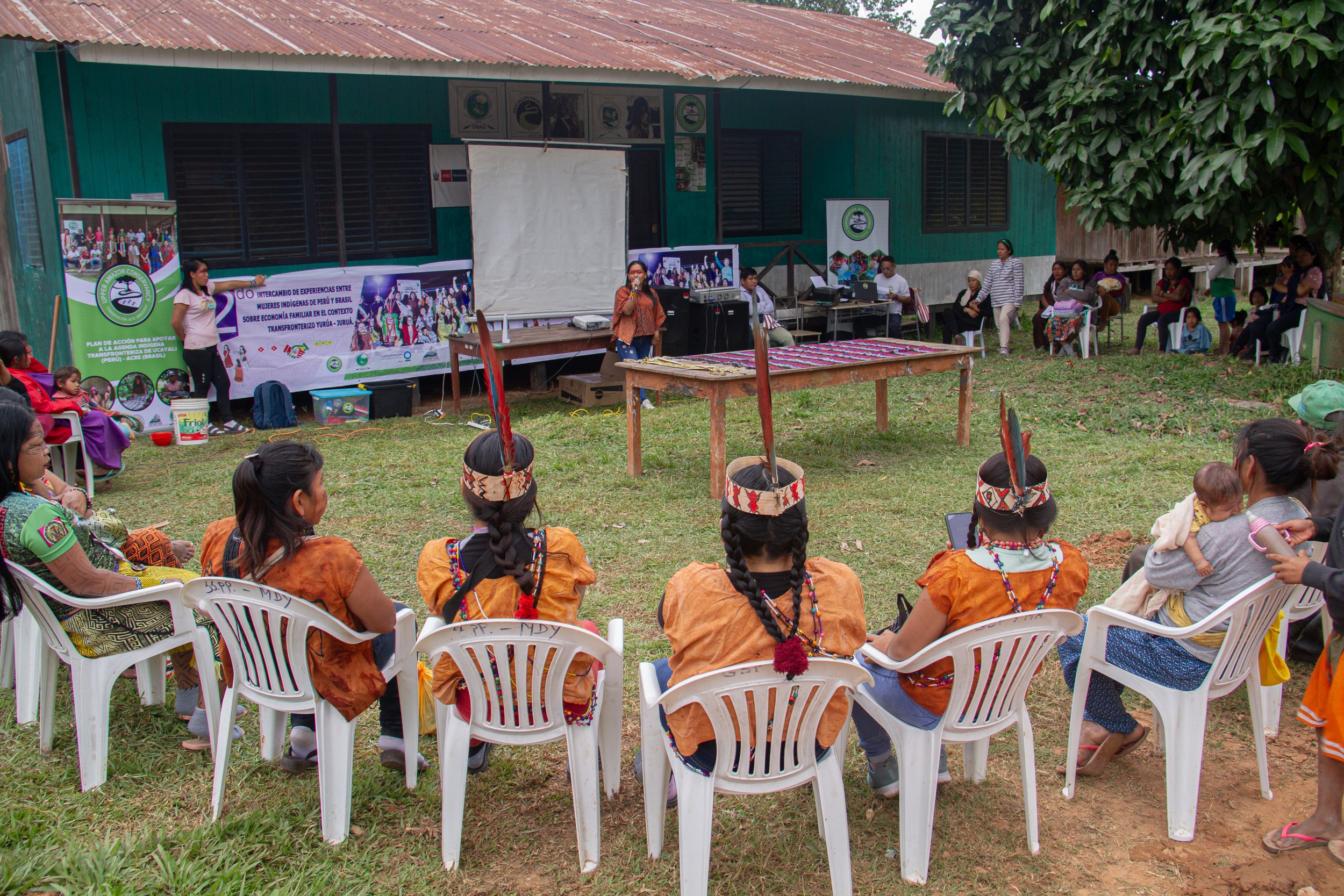
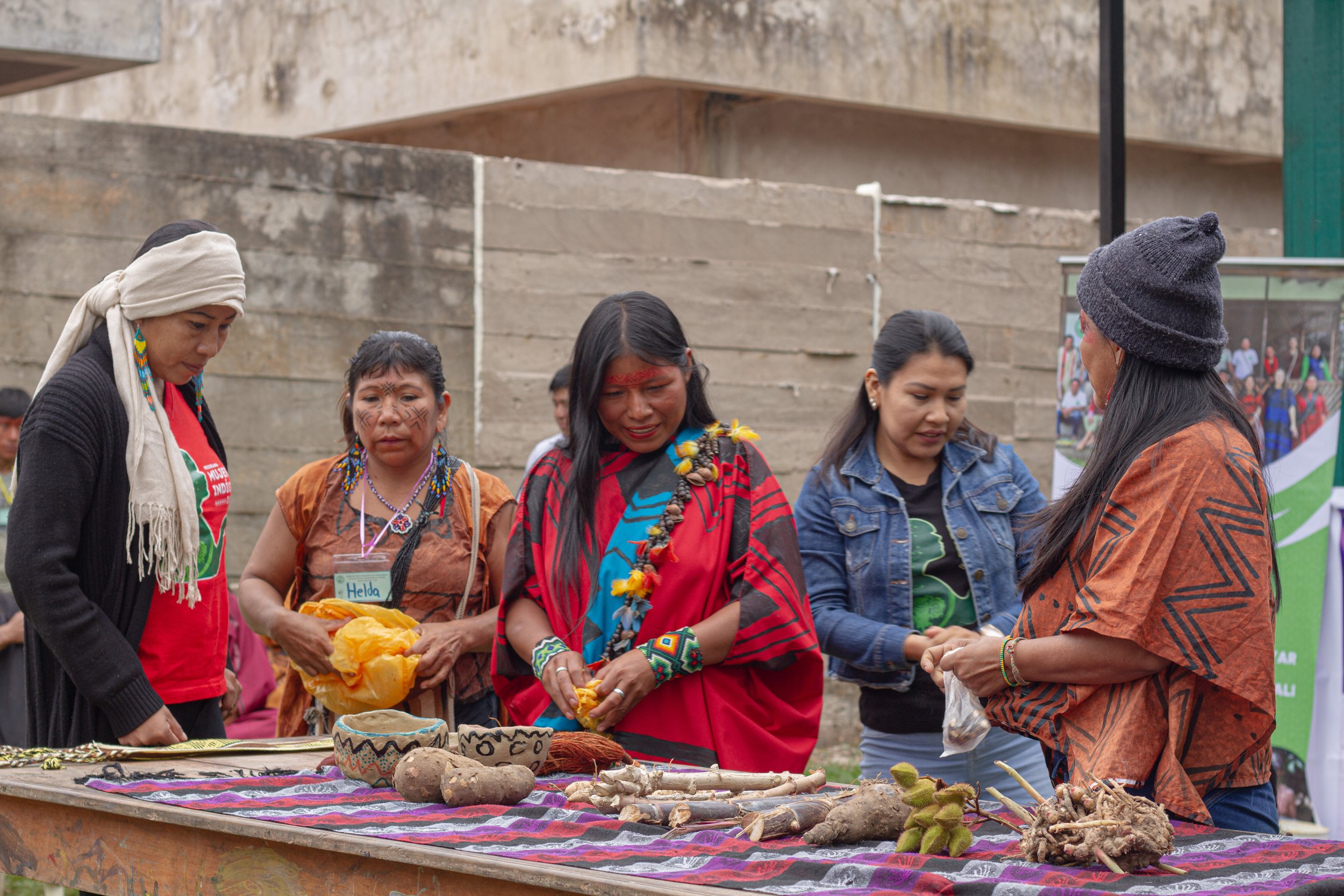
The Community Cooperative model was a central topic at these workshops. During a guided visit to the Ashaninka Apiwtxa community, leaders shared their successful experience with the Ayõpare Cooperative, which has inspired indigenous communities in Peru. Discussions highlighted the challenges indigenous people face in adapting to market economies and learning from past experiences.
APIWTXA COOPERATIVE VISIT PHOTOS
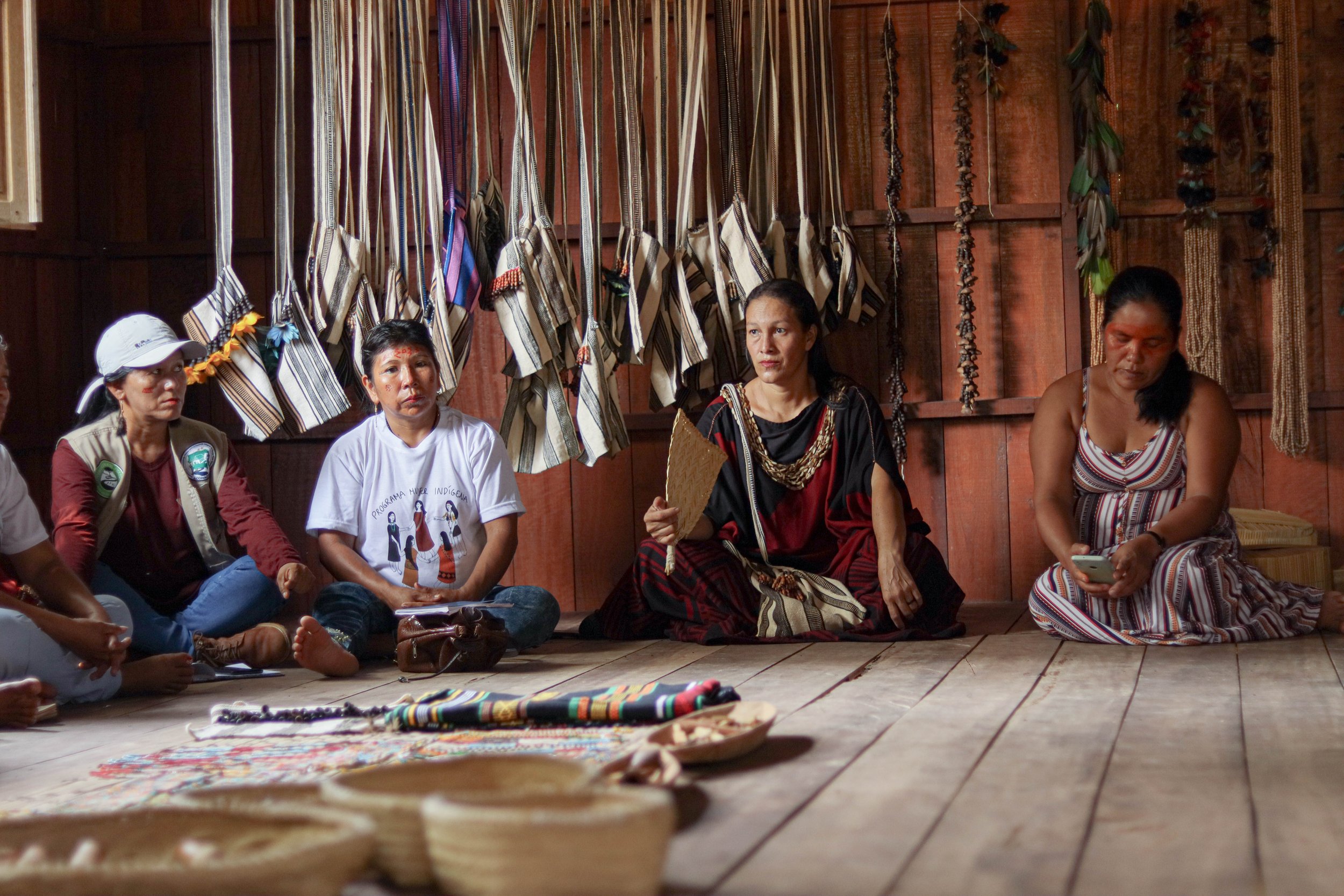

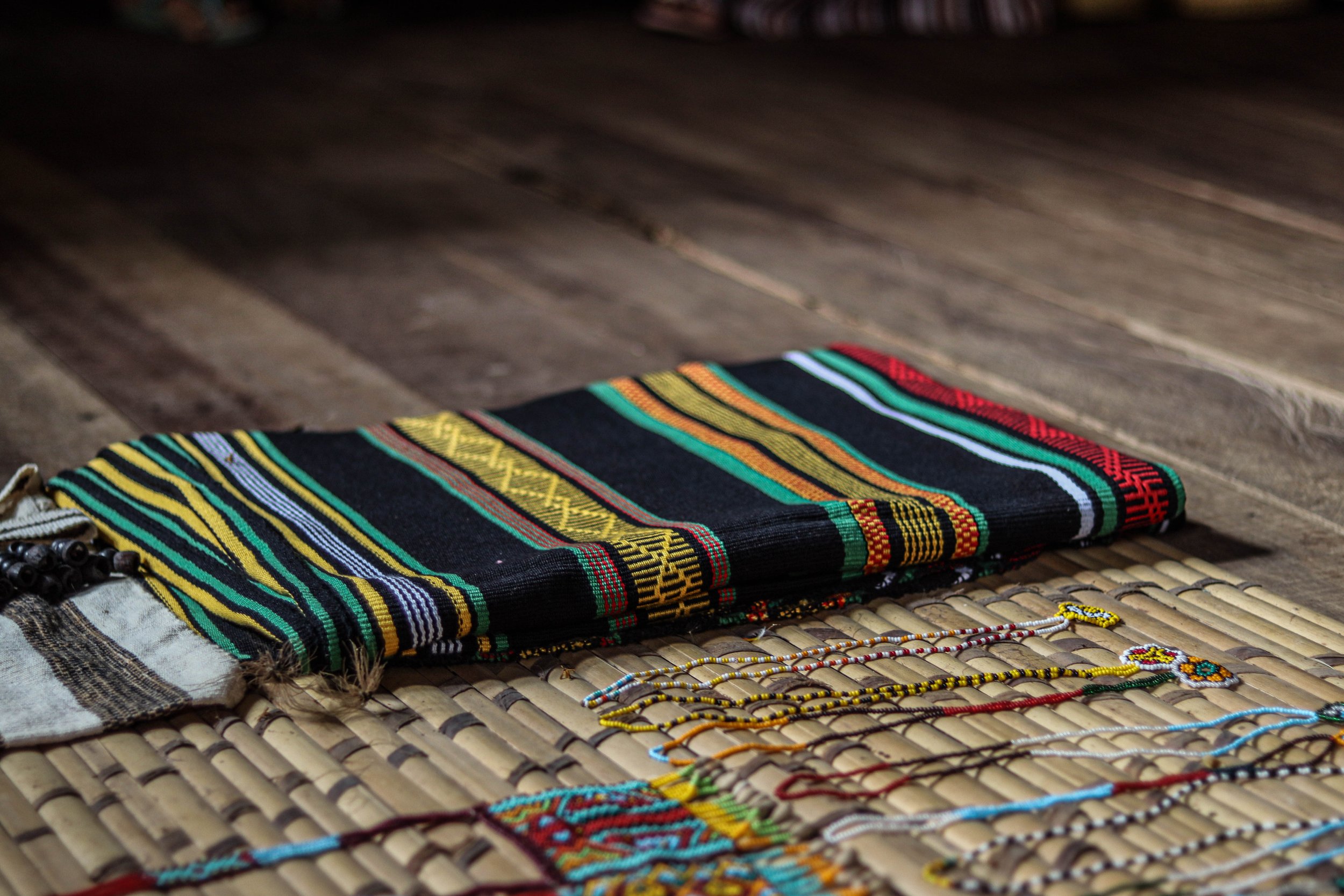
Following these discussions, leaders from Dulce Gloria and Sawawo proposed to their communal assemblies the need to organize and appoint representatives to manage the activities. Both communities agreed to first establish a venue for the Cooperative, including a storage space for products and a meeting room for planning.
During the first six months, the construction of the Cooperative facilities for Dulce Gloria and Sawawo-Hito 40 was completed.
CONSTRUCTION OF COOPERATIVE FACILITIES PHOTOS
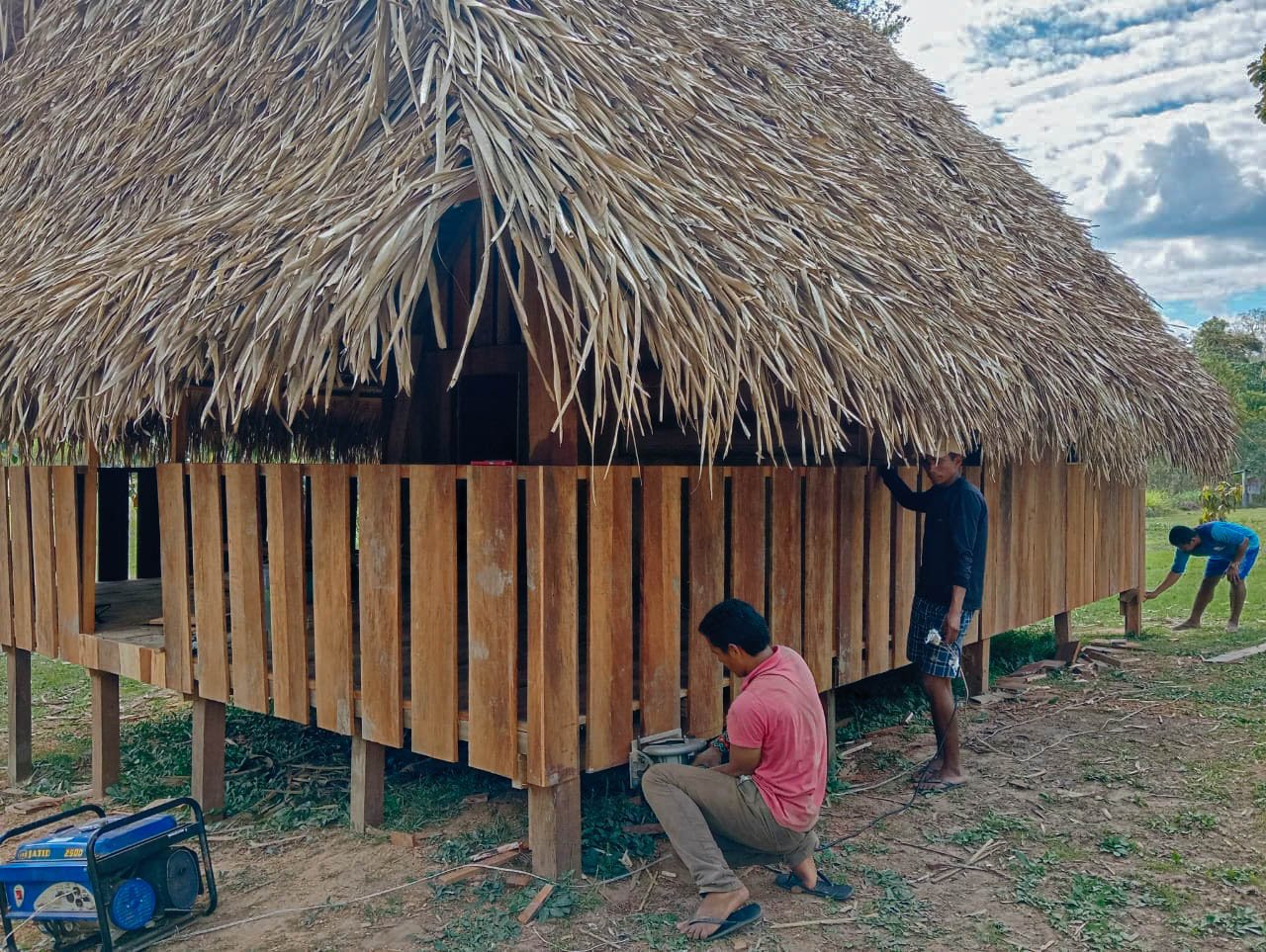
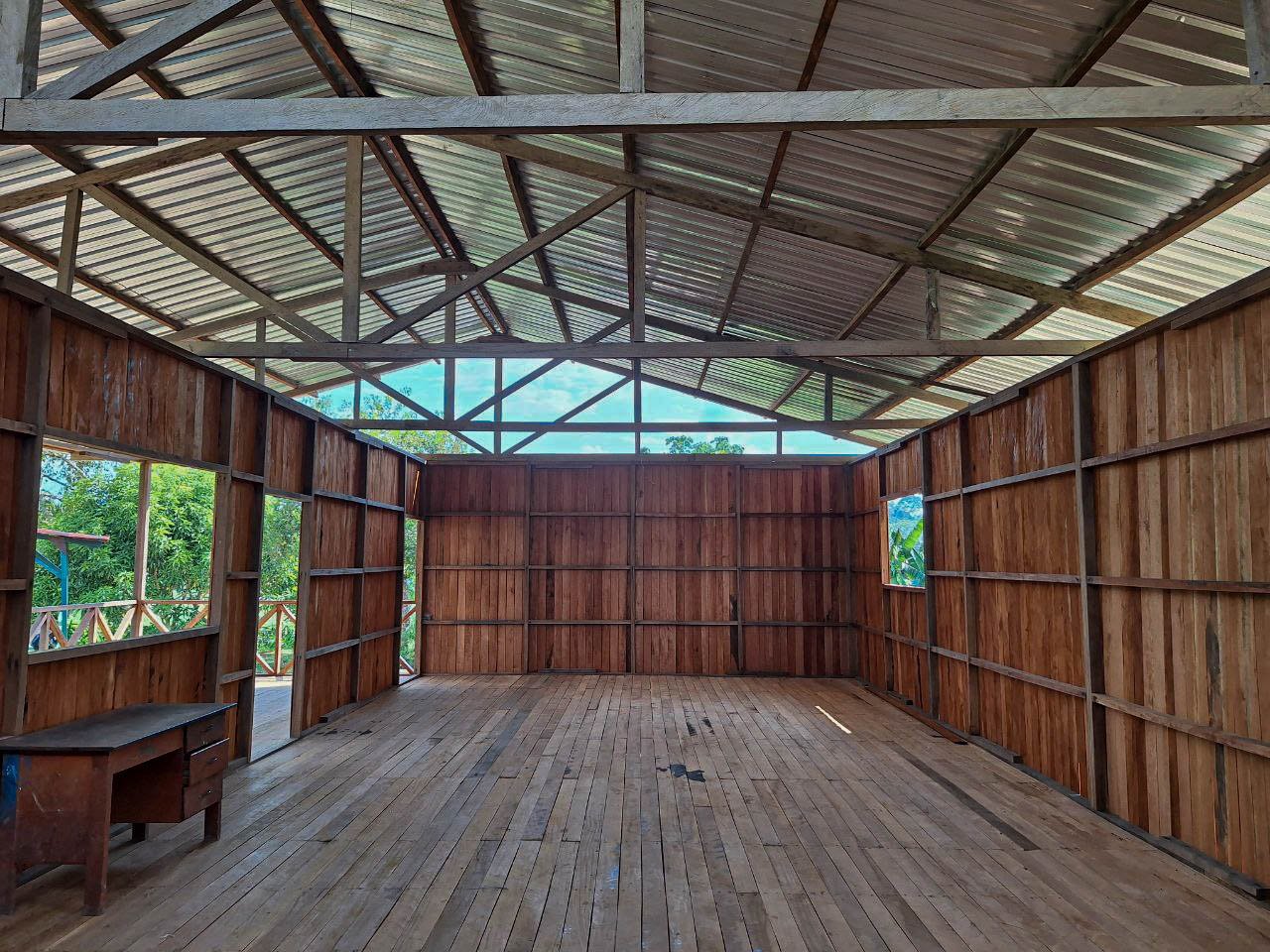
The next step involves securing management and bookkeeping training for Cooperative members. Continuous learning is crucial for operating the Cooperative in compliance with the regulations and procedures required for official enterprises in Peru. State programs, along with other sources of financial and technical assistance, will be valuable for strengthening the Cooperative's activities.
At the same time, UAC organizes sustainable production activities for the Yurúa and Alto Tamaya communities as part of its strategy to conserve and protect indigenous territories. Dulce Gloria and Sawawo are strengthening their productive initiatives with community projects that use resources sustainably, following traditional practices to minimize the impact on forests and optimize resource management. For example, Sawawo focuses on craft production from agricultural activities, while Dulce Gloria has developed a harvest management plan for artisanal fish production and trade.
DULCE GLORIA FISH COMMERCIALIZATION AND SAWAWO CRAFT PHOTOS
![Asociación de Pescadores Artesanales de Dulce Gloria (APA) [Dulce Gloria Artisanal Fishing Association] at the First Yurua (Peru) / Jurua (Brazil) Intercultural Festival in Puerto Breu.](https://images.squarespace-cdn.com/content/v1/5f3aa25de19e671ebde25b83/1725664551624-CX3DUXF9T8CMZ7FISAQ7/IMG_6564+DG.jpg)
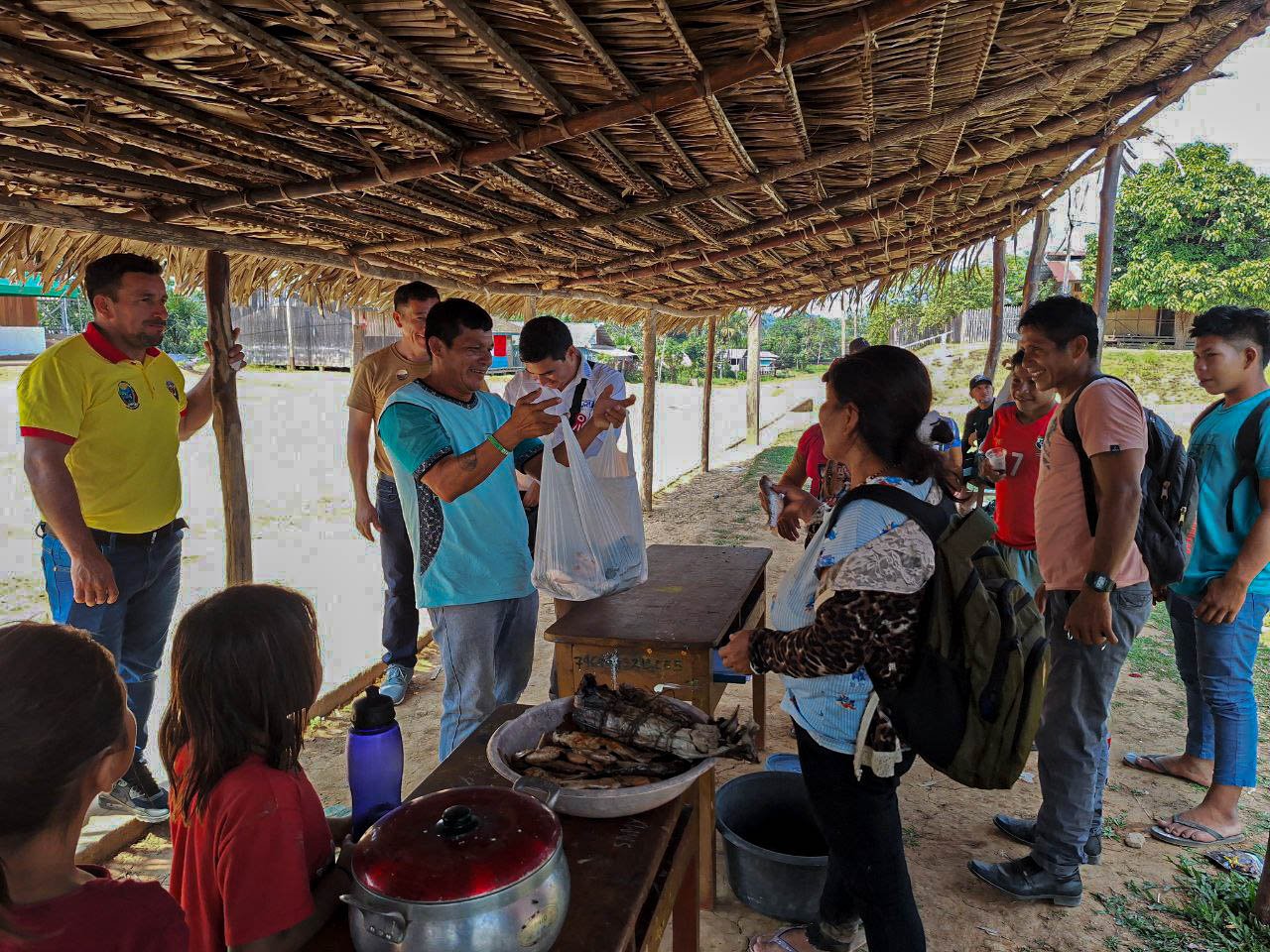
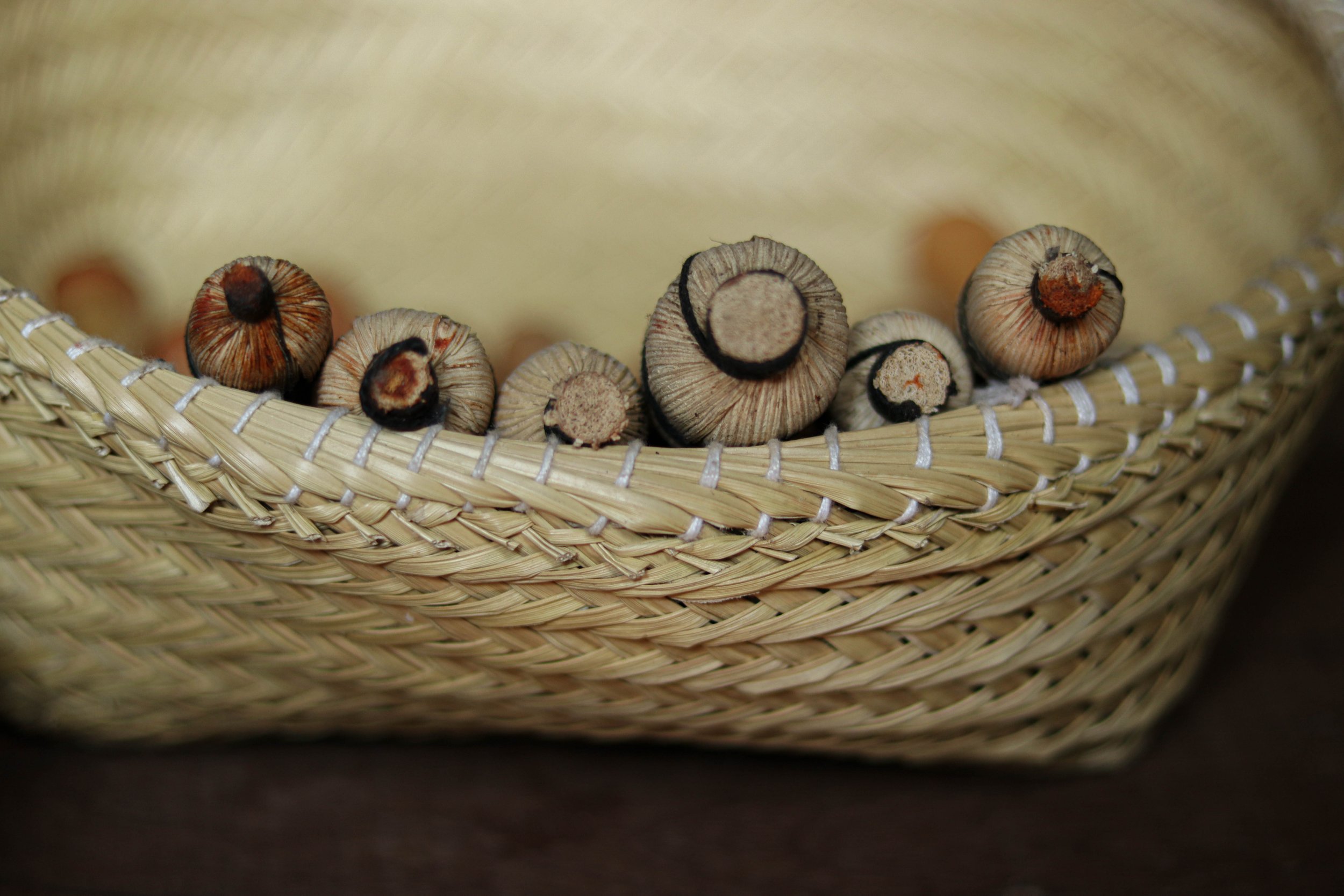
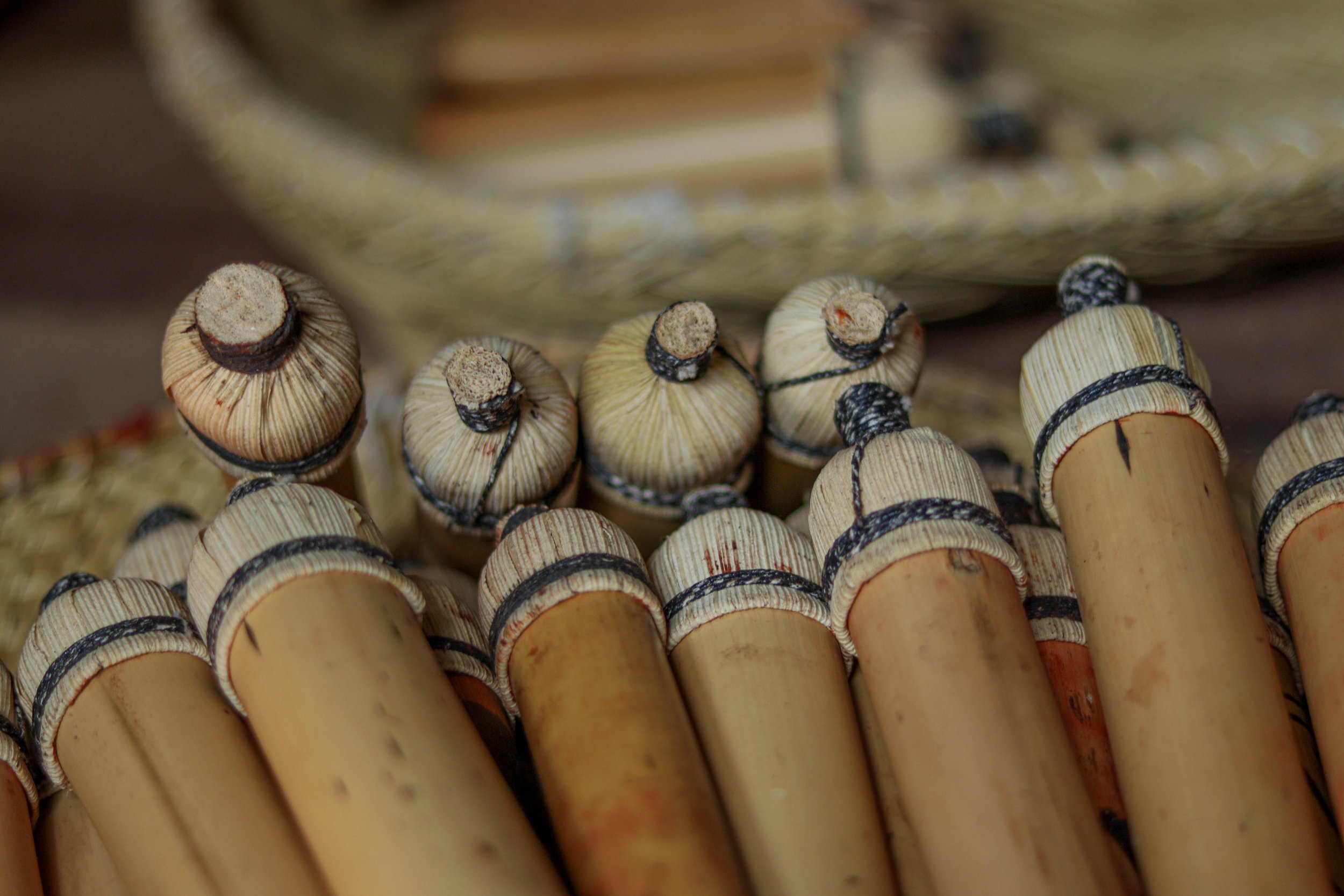
Overall, the Cooperative will enable more effective and fairer management of indigenous production in local markets such us Puerto Breu, the capital of the Yurua district. Potential future markets include cities like Pucallpa in Ucayali and Marechal Thaumaturgo in Acre, Brazil.
This initiative aims to demonstrate that, with leadership and expertise, it is possible to move beyond an extractive economy that previously benefited only external interests. UAC supports the conservation and sustainable development goals set by the indigenous people in the Yurua frontier region, fostering an environmentally responsible economy committed to these goals.
